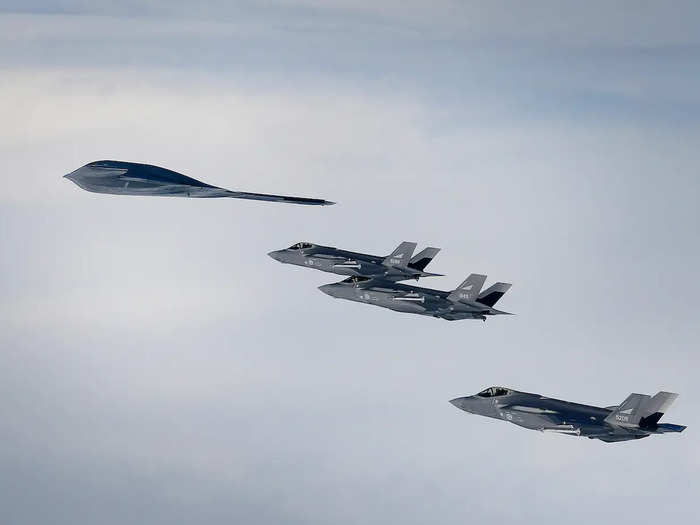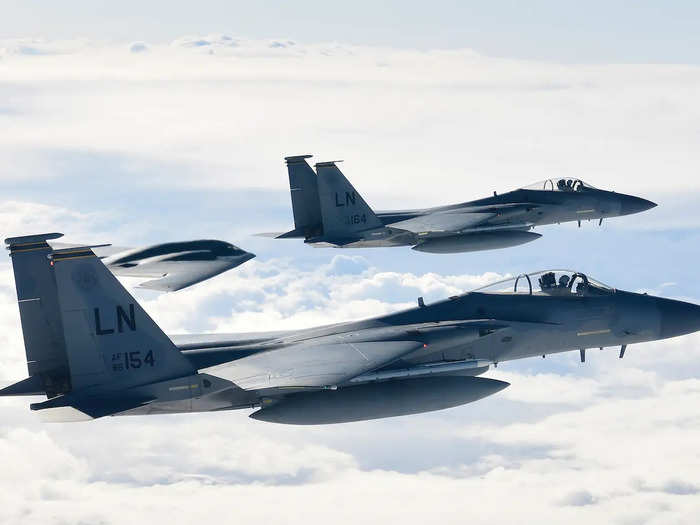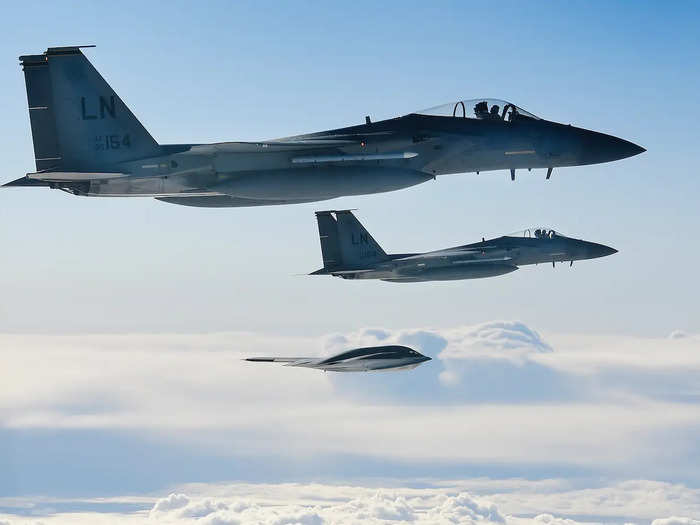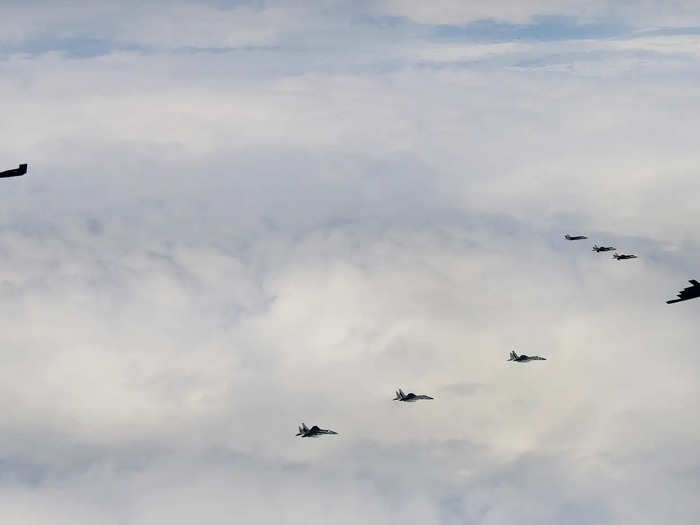The bombers left Lajes Field and conducted bombing training runs over the UK's Garvi Island before arriving at RAF Fairford on March 12.
"Operating bombers from forward locations enables collective defense capabilities and provides the US and NATO the strategic and operational capacity needed to deter adversaries while assuring our allies and partners," Lt. Gen Steven Basham, deputy commander of US Air Forces in Europe and Africa, said in a release.
RAF Fairford is the Air Force's forward operating location for the B-2 bomber, and despite describing Keflavik Air Base as "a forward location for the B-2" when they arrived there in August, "Iceland is not considered a forward operating location similar to RAF Fairford," US Air Forces Europe told Business Insider in September.
The flight over Iceland on March 16 was part of an Icelandic Air Policing operation in which NATO military aircraft patrol Iceland's airspace, as it does not have its own air force.
NATO also conducts Air Policing missions over the Baltic states of Latvia, Lithuania, and Estonia, which also lack their own air forces. Those missions frequently bring NATO aircraft into close proximity with Russian aircraft.
NATO aircraft do not maintain a continuous presence in Iceland, as they do for the Baltic Air Policing mission.
Norway's F-35s are in Iceland as part of what NATO calls its Airborne Surveillance and Interception Capabilities to meet Iceland's Peacetime Preparedness Needs mission, which started after the US withdrew from the island in 2008.
The four Norwegian F-35s arrived for the three-week deployment on February 19, bringing with them some 130 military and civilian personnel to work with the Icelandic Coast Guard at Keflavik Air Base.
Norway's F-35s were declared initially operational in November, and the Iceland deployment is their first foreign mission, but Norway is only the second country to deploy F-35s to Iceland, after Italy's air force sent its fifth-generation fighters there in late September.
"The world expects that NATO and the US continue to execute our mission with decisiveness, regardless of any external challenge," said Gen. Jeff Harrigian, head of US Air Forces in Europe and Africa. "Missions like these provide us an opportunity to assure our allies while sending a clear message to any adversary that no matter the challenge, we are ready."
Iceland has gotten more attention amid tensions with Russia because it sits in the middle of the Greenland-Iceland-UK Gap, through which the Russian navy and its submarines would have to pass to reach the North Atlantic.
But China also has growing interest in the Arctic, where receding ice is making the region more accessible for trade and resource exploitation — the latter is especially interesting for Beijing as its fleets travel farther afield for fish stocks.
In 2018, the US moved to block Chinese infrastructure investments in Greenland that could've given it a military foothold off of Canada's coast.




